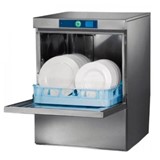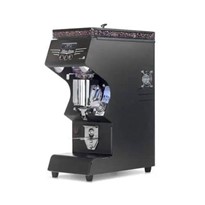Perhaps you bought a dishwasher many years ago and the unit is starting to show its age. While dishwashers are built to be reliable, using it every day for the last ten years will undoubtedly take its toll. If you operate a commercial kitchen, you know how important dishwashers are. The last thing you want is to serve customers with a glass of wine that has lipstick stains on it.
A dishwasher that’s running optimally is crucial to the success of your business. If your dishwasher is on the tail end of its lifespan, then maybe it’s time to explore your options. In this article, we’ll be discussing why you should consider replacing your old dishwasher with a brand new unit that works 10x better and with up to date features.
Signs that you should replace your dishwasher
Dishwashers aren’t immune to wear and tear. These appliances go through dozens of dishes each day, especially when using a commercial dishwasher. You’ll know your dishwasher needs replacement when you spot these telltale signs during its operation.
- Rust – While rust formation outside of the dishwasher is a fairly normal scenario, it’s the rust on the inside that you should worry about. This means that the paint is starting to wear off and the paint chippings might end up clogging your drain filter if left untreated.
- Scale – Scale is a build up of minerals and soap residues that harden over walls, pipes and components within the dishwasher. While regular de-scaling will remove most of this. Some component damage occurs, this will cause reduced operational performance.
- Spotty dishes – Another sign that your dishwasher needs replacement is when the dishes come out spotty. No matter how long you run the cycle, the dishes don’t get completely cleaned.
- Rust – Odd noises -If you hear any unusual noises when operating the dishwasher, it’s a sign that the components are starting to break down. Usually, this noise is associated with the motor, which is an expensive component to replace if it does break down.
- It’s just too old – Let’s face it, old dishwashers are inefficient compared to their latest counterparts. They use far more water and energy which leads to higher water and electricity bills, making them inefficient for day-to-day use.
- Service calls – When you start to have regular service calls for minor breakdowns, this is a sure sign that the dishwasher may need to be replaced. As the unit requires water, electrical, chemicals, heating and drainage operations, over time these will deteriorate.
Why upgrade to a new commercial dishwasher
You might be contemplating repairing your old dishwasher in an effort to save money, but in our experience, it’s just not worth the time and effort. Instead of enduring with your old unit, consider upgrading to a newer model. Experts suggest that the average dishwasher lasts three years before wear and tear sets in. Modern commercial dishwashers have a ton of features compared to older units and the performance benefits are worth the upgrade alone.
The fact is, most dishwashers today are more energy-efficient and more powerful than the previous generation of dishwashers. This means you’ll get more bang-for-your buck out of your investment and you’ll save up on costs both in the short-term and the long-term. The commercial dishwasher market is a competitive landscape and each year, manufacturers are coming up with new technologies to further enhance their units.
For example, modern dishwashers offer a variety of cycles like power wash, rinse and hold, and more. This allows you to customize the cleaning efficiency of your dishwasher depending on how you see fit. Also, newer units tend to be quieter during operation which means you can focus better on the task at hand without being distracted by loud, clunky noises.
While you may find it difficult to part ways with your long-time kitchen partner, upgrading to a new unit is necessary to maintaining a smooth workflow and a legion of satisfied customers. Consider replacing your old dishwasher today with a better, more reliable dishwasher that’s loaded with plenty of tech features.



















